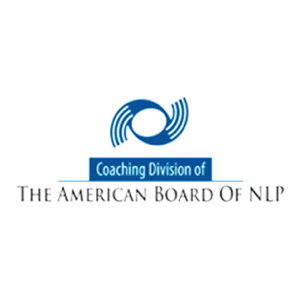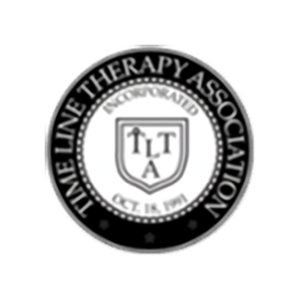Despite helping individuals and organizations for decades, skeptics still question NLP’s credibility. Lack of research and support from mainstream psychology has branded NLP a pseudoscience. However, proponents of NLP continue to show tangible results. So, is NLP real? Read on as we discuss this in detail.
What is Neuro-Linguistic Programming?
Before we dig deeper into how and why NLP is real, it is crucial to understand what NLP stands for; what is Neuro-Linguistic Programming?
In the simplest of terms, NLP is the practice of studying and altering how someone thinks and behaves to achieve a positive outcome.
In the term Neuro-Linguistic Programming,
- Neuro- refers to the emotional, physical, and mental neurological components,
- Linguistic- relates to how you communicate with yourself and others,
- And Programming- refers to how your brain processes information and how it helps shape behavioral patterns and, ultimately, your present life.
NLP helps you connect better with your unconscious mind to reprogram destructive behavior patterns to match those of successful individuals.
How Was NLP Founded?
NLP was founded in the 1970s at the University of California, Santa Cruz, by Richard Bandler, a mathematician and information scientist, and John Grinder, a linguist. They came together to release a book called The Structure of Magic I: A Book about Language and Therapy. In this book, they identified patterns based on the modeling of renowned therapists Fritz Perls, Virginia Satir, and a well-known psychiatrist Milton Erickson, which gave birth to the meta-model and Milton model, respectively.
Other notable techniques included in the book came from Gregory Bateson’s work on cybernetics and Naom Chomsky’s work on linguistics.
All these practices combine in NLP to provide identification of language patterns describing how each individual perceives their reality and to change them for better outcomes.
Is Neuro-Linguistic Programming Pseudoscience?
Lack of empirical evidence and anecdotal support has become the cause of NLP sometimes being branded a pseudoscience. However, more and more peer reviews have recently shown that NLP techniques help manage self-esteem and work-related stress. Moreover, a 2021 study showed that NLP techniques enabled 180 nurses to improve their work quality and be more satisfied with their jobs.
The growing recent evidence and outstanding personal and professional results from NLP students show that this approach works. Yes, there needs to be robust research to remove the stigma created by poor initial studies; however, more of NLP’s criticism stems from the fact that there needs to be more credible research, not that the approach does not work.
What Are The Benefits Of Neuro-Linguistic Programming?
Further proof that NLP is indeed real is that it has numerous advantages to those who opt for certification from credible sources and pursue the practice ethically. NLP is a mental skill, and once you learn the language of your mind, you can achieve clarity of what you want and how you can get it. The answers to success are within you; NLP techniques help you piece them together.
Clarity With Goals and Vision
Perhaps the biggest hindrance to success is that we often do not believe in or understand our purpose. Through NLP, we study subconscious daily behavior patterns that determine our outlook on life.
When you study NLP, you can learn what your goal in life is and how to achieve it. This clarity comes with altering your worldview to mimic successful individuals who have achieved greatness.
Moreover, since NLP works on the unconscious mind, it changes how we communicate within ourselves, making it much more effective due to its rapid change techniques. So, you gain clarity on what you want in life and the vision of how to get it.
Improved Communication With Others
As the name suggests, Neuro-Linguistic Programming is all about understanding how you communicate within and with others. Thus, this approach is tailored to improve your communication skills.
NLP uses techniques like mirroring and establishing rapport to gain others’ trust quickly. People will likely communicate with you and listen to you more if they believe you understand them. Furthermore, improved communication skills also help you overcome social anxiety by enabling you to express yourself better through techniques such as visualizing a successful conversation beforehand to gain confidence.
NLP allows you to become a better communicator since it teaches you how to use verbal and non-verbal cues to assess a listener’s response and act accordingly.
Overcoming Limiting Beliefs
Many times, we are the only thing in our way. Your mindset plays a vital role in assessing different situations. We often limit our capabilities because we limit our growth. By studying NLP, you can identify these self-sabotaging patterns and alter them to succeed in your personal and professional life.
One of the main techniques of NLP is modeling; it basically teaches that success can be replicated if we follow the behavioral patterns of successful people.
You can make the required changes by analyzing how you view the world to get the ideal outcome. For example, a pessimist and an optimist will view the same thing very differently; the former will see a risk, and the latter will view an opportunity.
Developing Strategies For Problem Solving
The first step to problem-solving is finding the heart of the problem to reach a beneficial solution. NLP does just that by helping you understand individual world perception and how experiences shape reality and behaviors. Once you tap into the conscious and unconscious mind, developing strategies to tackle all kinds of problems becomes easy.
After establishing the problem, NLP’s foundational pillars, like focusing on the outcome and changing your habits to achieve what you desire, can help you solve the issues quickly.
Moreover, these strategies work efficiently because they are based on your brain language: sensory awareness or how you experience the world.
Improved Self-Confidence
Various NLP techniques help improve self-confidence. From modeling confident people to tapping into a moment where you feel most brazenly yourself, you can use NLP tools to negate behaviors that make you self-conscious or restrict your ability to behave like your true self.
Moreover, with NLP techniques like anchoring, you can attain this feeling of complete confidence any time you like. With a touch (or smell or sound), you can tap into your most confident self any time you have negative thoughts or are in a difficult position.
Common Criticisms of Neuro-Linguistic Programming
Even with NLP techniques helping people overcome self-limitations and general negative behaviors over 5 decades, some skeptics still question its credibility. NLP opponents usually have two common critiques concerning the approach: lack of empirical evidence and huge claims made by founders and certain practitioners.
Lack of Research
As discussed earlier, NLP needs better research to authenticate its approach. However, it does not help that NLP’s unregulated nature makes it difficult for practitioners and NLP proponents to follow general research methodology. Moreover, evaluation is complex since each NLP session follows the student’s specific needs.
Moreover, a lot of the curtain stems from initially poorly-construed studies, which created a bias against NLP as an approach to the point that authors have had their papers initially rejected from reputable sources for referencing NLP.
However, a growing evidence base now supports NLP’s approach and effectiveness, but much work still needs to be done.
Claims Made By Founders and Practitioners
Another reason people have a negative impression of NLP techniques despite proven results is specific claims made by the founders and practitioners. Since NLP is subjective and unregulated, it can be difficult to standardize the approach. This gives way to unethical practices from certain practitioners who make false claims. That is why it is essential to always look for accredited courses when learning NLP.
Moreover, some claims by NLP founders about how NLP can cure physical ailments like short-sightedness or serious mental conditions like schizophrenia were almost met with criticism due to a lack of scientific backing.
Proven Uses of Neuro-Linguistic Programming
Despite its doubters, NLP has persevered for over 50 years, helping people achieve excellence with its real-life applications. From effective coaching to supplementing therapy to preparing individuals for leadership roles, NLP techniques have proven useful in various practical aspects.
Professional Coaching
NLP techniques help you pick up on social cues, create instant rapport with your clients, and enhance your communication skills to excel in coaching. NLP tools like using mirroring help you mimic your clientele’s behavior to help put them at ease and build trust. Furthermore, once you understand how your brain interprets signals and their effect on your perception of life, you can coach people with invaluable life skills and how to be successful in life.
NLP techniques provide you with the tools to succeed as a coach, regardless of your niche, and bring meaningful change into others’ lives.
Therapy
NLP strategies are a powerful resource to help people working in therapy. It can treat several mental challenges like depression, anxiety, and panic attacks. Its trust-building strategies are also of great use when building rapport with clients and getting to know them subconsciously.
NLP enables you to pick up on spoken and unspoken social cues to suggest behavioral and perceptual changes that can help battle PTSD, trauma, and addictions.
Leadership Training
NLP techniques and tools have also proven extremely useful in leadership training. This approach allows you to understand your team much better, especially what they believe in and want to achieve. For any leader to succeed, they need to be in tune with their team to guide better and motivate them.
Furthermore, you can succeed in various leadership roles by modeling your role models and adopting behaviors that separate them from the rest.
In short, NLP strategies make a more confident, empathetic, and inspiring leader.
Final Thoughts On Neuro-Linguistic Programming Being Real
The general perception of NLP has varied since its inception. However, despite the debate on how “real” this approach is, the benefits of applying NLP to all aspects of your life are very real.
As for skeptics labeling NLP a pseudoscience, a roader evidence base is required to study its revolutionary effects. But, for that to happen, there needs to be an unbiased and impartial approach to testing these techniques that can sometimes be hard to generalize.








